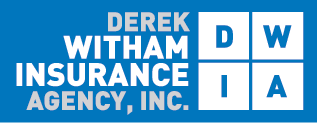FAQs : Malden Auto Car Insurance
Coverage vs. Cost
You will always want to balance coverage against cost. Choosing the appropriate level of coverage depends on a number of factors, including the value of your vehicle, the value of assets you must protect, the amount of money you can afford to pay out-of-pocket, and your tolerance for risk. If a claim against you exceeds your coverage limits, you will be personally responsible for the amount that exceeds the coverage. As a licensed independent agency we can tailor the policy to fit your needs. To arrive at the cost of your premium, the insurer will consider the coverage levels you select and will use statistical information about you, the area you live in, and your car.
Evaluating and Comparing Policies
Compare policies in terms of coverage, exclusions, the reputation of insurer and then price. If you ever find yourself shopping for different quotes, make sure you are comparing extremely similar policies. Also, weigh the policy cost against both coverage and the quality of service provided.
How Much Should Auto Insurance Cost?
It's a question we hear almost every day. How much you pay for car insurance depends on many factors: where you live, your age, what sort of car you drive, your driving record. But you can reduce the cost of insuring your car in several ways. First, take into account the price of insurance when choosing a vehicle.
More expensive cars cost more to repair, maintain and insure.
Performance cars cost more to insure than family sedans—a lot more.
Safer cars may also insure for less.
We offer discounts for vehicles with anti-lock brakes on all four wheels.
Insure all your cars with one company—multi-car discounts can be substantial.
Consider increasing your deductible. By raising the amount you pay out-of-pocket for losses, you can save 20 percent or more on your auto policy.
Also consider reducing collision insurance if you're driving a vehicle that's more than eight years old.
Try to weed out overlapping insurance. For example, if you have an excellent medical and disability plan at work, you might wish to reduce medical or personal injury coverage on your auto policy, and save the difference. Ask us to explain the trade-offs. And drive safely. A clean driving record can help lower your insurance rates through safe-driver discounts.
We also offer discounts for Low-Mileage drivers, Car-Poolers, Good Students, and Seniors who take drivers' refresher courses. The price you pay is also influenced by how you pay. Ask us about your various payment options.
Do I Have Enough Auto Insurance?
Here's a piece of advice to consider when you buy auto insurance: Ask a lot of questions. Auto insurance often seems fraught with weighty terminology. If you're unclear about the difference between comprehensive and collision, don't fret; you're not alone. It's smart to ask us to explain the differences, much as you might ask your doctor to demystify medical terms.
Auto insurance blends several types of coverage into one policy. Typically, your policy will include some combination of comprehensive, collision, medical, liability and uninsured motorist coverage. Throw in the deductible amount, the vehicle's value and personal data such as your age to arrive at the policy's cost. Reduce the coverage amounts or raise the deductible and the cost of the policy goes down.
So, what do you need? It depends on, well, your needs.
LIABILITY
Pays for the damage you cause to others if your car is involved in an accident. It also protects you from being cleaned out if you are sued following an accident.
The greater your assets, the more you stand to lose.
If you have substantial financial resources, you may need liability coverage that exceeds the coverage that you'll get from an auto insurance policy.
In that case, our personal umbrella policies can provide the extra liability protection you need.
COLLISION
Covers damage to your car in an accident, should reflect the value of your vehicle.
We can help you find the balance between the cost of collision insurance and the value of your car.
It might not be worth paying $200 a year for collision insurance on a car that's worth only $1,000.
But if the car is worth a bit more, you probably want this coverage.
COMPREHENSIVE
Comprehensive coverage pays for your car if it is stolen, vandalized or damaged in some way other than in a collision.
MEDICAL
Provides for medical expenses to you and your passengers that are the result of an accident.
The way you use your car may make a difference in the amount of medical coverage you need.
For example, we might suggest more coverage for a parent who regularly takes a carload of kids to soccer practice than for a driver who expects to drive mostly solo.
UNINSURED MOTORIST
Pays when you're in a wreck with someone who has no insurance. This last type of coverage is essential.
GAP COVERAGE
A type of insurance coverage that covers the difference between the payoff of a leased vehicle and the amount covered by other insurance coverage, when a vehicle is damaged or stolen during the term of the lease. Most gap coverage requires that the lessee not be in default under the terms of the lease.
True protection comes from understanding your unique situation, and applying coverage accordingly. Consider these factors as you speak with us. Once you understand the language, you'll be able to apply the best policy for your needs, and maybe even impress your friends with your mastery of the lingo.
Have more questions about Malden Car and Auto Insurance? Contact Derek Witham Insurance Agency, Inc. (DWIA) today!

